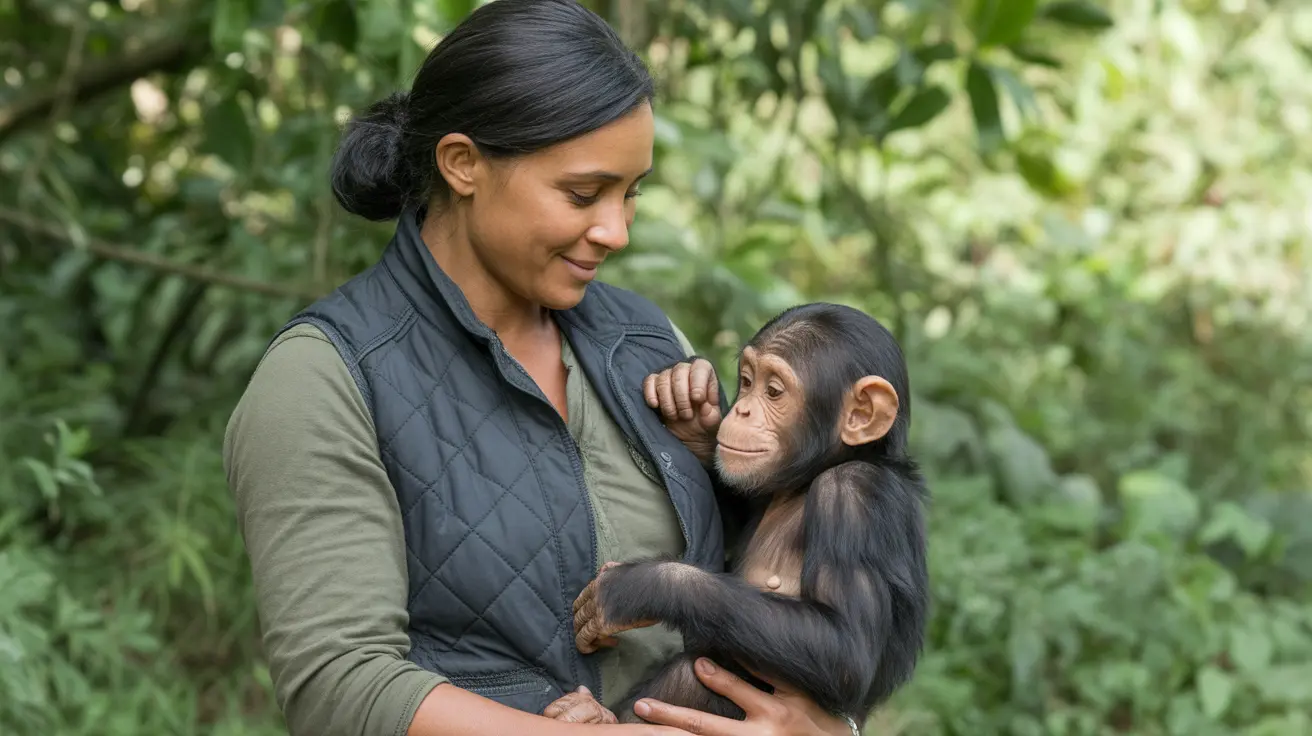In a revealing interview with the BBC, renowned primatologist Jane Goodall shared intimate details about her early fascination with animals, offering insights into the experiences that would later revolutionize our understanding of primate behavior and animal intelligence.
From her earliest days observing household pets to becoming one of the world's most influential voices in animal research and conservation, Goodall's journey demonstrates the profound impact that early connections with animals can have on shaping one's life path and understanding of the natural world.
Early Influences on Animal Behavior Studies
Goodall's groundbreaking approach to studying animals began with simple observations of her childhood companions, particularly her dog Rusty. These early experiences taught her fundamental lessons about animal personalities and emotions that would later inform her revolutionary research methods with chimpanzees.
The Path to Primate Research
Her unique perspective on animal behavior led her to Gombe Stream National Park, where she would conduct her landmark studies. Unlike traditional researchers of her time, Goodall approached her subjects with empathy and individual recognition, a method that proved instrumental in her discoveries about primate social behavior.
Tool Use in Animals and Revolutionary Discoveries
One of Goodall's most significant contributions was documenting tool use among wild chimpanzees, a finding that challenged existing definitions of human uniqueness. Her observations revealed chimpanzees fashioning and using tools for various purposes, fundamentally altering our understanding of animal intelligence studies.
Understanding Animal Emotions
Through patient observation and detailed documentation, Goodall demonstrated that chimpanzees experience a rich range of emotions previously thought unique to humans. Her work revealed complex social bonds, including displays of affection, grief, and even warfare among chimpanzee communities.
Conservation Legacy and Modern Impact
The Jane Goodall Institute continues her vital work today, focusing on wildlife conservation programs that combine scientific research with community-based initiatives. Her Roots & Shoots program engages young people worldwide in environmental conservation and animal welfare projects.
Ethical Animal Treatment
Goodall's research has significantly influenced modern approaches to ethical animal treatment, emphasizing the importance of recognizing and respecting animal intelligence and emotional capacity in both wild and domestic settings.
Frequently Asked Questions
How did Jane Goodall's early experiences with pets influence her approach to studying chimpanzees?
Jane Goodall's childhood dog, Rusty, helped her recognize that animals have personalities, minds, and emotions, which later shaped her empathetic and detailed study of chimpanzee behavior.
What significant behaviors did Jane Goodall discover in chimpanzees that challenged previous beliefs?
Goodall observed tool making and use, meat-eating and coordinated hunting, complex social bonds such as hugging and kissing, and even aggressive behaviors like war and infanticide, all of which redefined human-animal distinctions.
What can pet owners learn from Jane Goodall's research about animal emotions and intelligence?
Goodall's work demonstrates that animals, including primates, have rich emotional lives and social interactions, suggesting that pet owners should acknowledge their pets' personalities and emotional needs, and strive for compassionate care.
Continuing the Legacy
Today, Jane Goodall's work continues to influence how we understand and interact with animals, from wild primates to our household pets. Her groundbreaking research reminds us that animals are complex, emotional beings deserving of our respect and protection.
Her message resonates particularly strongly with pet owners, encouraging them to observe and appreciate their animals' unique personalities and emotional capabilities. Through understanding and empathy, we can build stronger bonds with our animal companions and contribute to their wellbeing.






